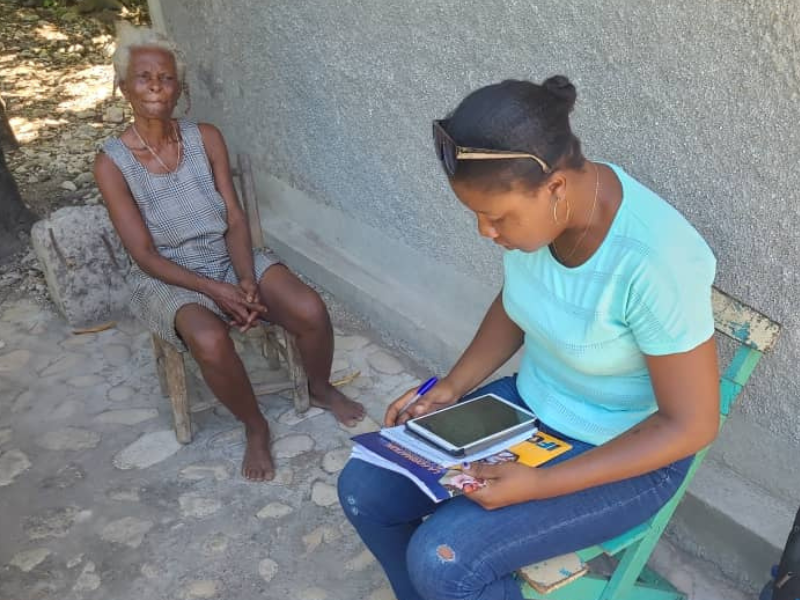Creative solutions continue food security work in Haiti
Poverty, crime, and natural disasters have contributed to food insecurity concerns in Haiti for many years. Food insecurity has only grown worse since gang violence began to escalate following the assassination of President Jovenel Moise in July 2021, and further escalated since early in 2024.
Researchers from the Tulane School of Public Health and Tropical Medicine have been actively working to evaluate food security in the Caribbean country since 2019, but added safety concerns have prompted that work to take on a different look in order to adapt.
The evaluation project has been spearheaded by Principal Investigator Dr. Nancy Mock, professor of International Health and Sustainable Development, alongside a team including fellow IHSD faculty Dr. Paul Hutchinson and Dr. Shalean Collins, along with Dr. Michelle Lacey (School of Science & Engineering), Peter Horjus (IHSD project director, MPH IHSD '03), and Sarah Truxillo (MPH IHSD ’08) as project manager.
Tulane’s working group developed an innovative solution. The team recently completed a baseline quantitative survey to evaluate resilience and food security activities in two distinct areas in Haiti under the umbrella of the Food Security and Nutrition Network through an Implementer-Led Evaluation and Learning (IMPEL) associate award.
Among the chief takeaways from the early survey results are that food insecurity in Haiti is very high, requiring long-term and multi-sectoral engagement with communities through several pathways to resilience identified during the survey.
Funded by the USAID's Bureau for Humanitarian Assistance, IMPEL gathers information and knowledge in order to measure the performance of resilience and food security activities, strengthen accountability, and improve guidance and policy. IMPEL is implemented by a consortium that includes Tulane working in Haiti, as well as studies in 10 African countries.
Haiti is a particularly complex context for field research. Road travel within the country was unsafe and air travel too expensive, so Tulane and their local research partner Institut de Formation et de Services (IFOS) utilized satellite internet and a hyrbid in-person/remote model to train enumerators for the study.
Under Tulane’s guidance, IFOS built training sessions for survey administrators in two different parts of the country, facilitated via online meetings utilizing Starlink. The Starlink connection also enabled the research teams to share data collected on a daily basis, so Tulane investigators could review the data and provide feedback to IFOS if any adaptations in data collection were needed.
“This proved to be very effective -- even better than we had hoped!” Horjus said. “The fact that internet was assured in both places made a huge difference, as internet access is often inconsistent or slow in much of the country.”
“I think I had more problems during the training with my Cox cable internet here in New Orleans than any issues in Haiti with their connection!” he joked.
Despite the significant challenges, the newly trained team has been able to implement all scheduled activities, with only a few minor delays. Data analysis was completed in just a few weeks, thanks in part to the internet link.
The next steps for the project include an endline survey planned for the fall of 2026, which is scheduled to include a qualitative component. The Tulane group is hopeful about traveling back to Haiti for that part of the project, but if security concerns continue, they know that they can circle back to the hybrid training approach they’ve recently implemented to work through challenges again.
“We still don't know what things will be like in fall of 2026,” Horjus said. “But we have the hybrid remote approach we did in 2023 to fall back on.”

